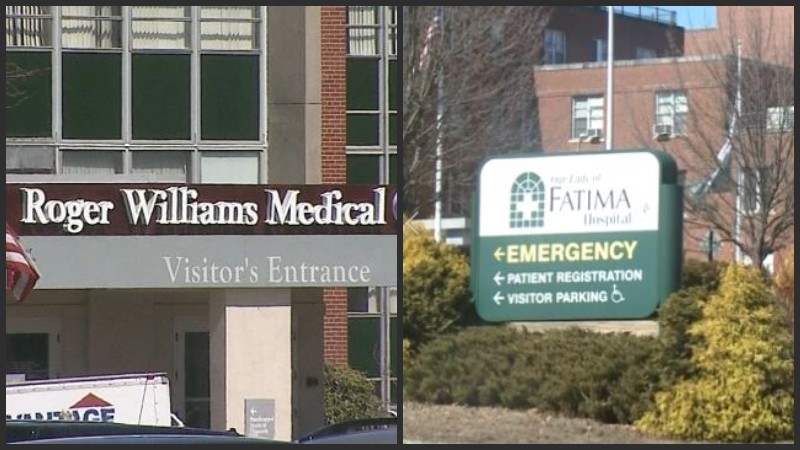PROVIDENCE, R.I. (WPRI) — Starting Thursday, Rhode Island medical marijuana patients will no longer have to pay $50 to obtain a medical card, a change that coincides with the start of recreational marijuana sales.
Five existing medical dispensaries were issued hybrid licenses to start selling recreational cannabis on Thursday, while still selling medical marijuana. The stores are the first step towards a larger process of allowing 33 retailers statewide, which could take more than a year.
With the influx of new state taxes for recreational cannabis, lawmakers did away with medical card application and renewal fees, caregiver card fees and the plant tag fees for medical patients and caregivers who grow cannabis at home.
“Patients up until today were having to pay for a card for the right to go into a dispensary,” said Ellen Lenox Smith, a medical marijuana patient, in an interview Thursday. “You don’t have to do that to go to your pharmacy to get your medication.”
Smith, who uses medical marijuana for a connective tissue disease, has long advocated for decreasing the cost of access to medical marijuana. The drug has been legal for medicinal use in Rhode Island since 2006, but the first retail compassion center didn’t open until 2013.
Rhode Island will be collecting a 20% tax on recreational marijuana, and Smith argues the 7% sales tax on medical cannabis should be repealed. Rhode Island does not tax other prescription drugs.
“We’re still being taxed for our medication, which happens to be cannabis,” Smith said. “I don’t have a choice, it’s all I can use to stay alive.”
State regulators say they are on high alert for any issues in the medical marijuana program as dispensaries start selling recreational pot, including supply issues.
“That risk absolutely exists,” said Matt Santacroce, the interim deputy director of the Department of Business Regulation, on Newsmakers last week. “That’s why we were very intentional in the application, in our inspections, and in our requirements for these retailers to get licensed for adult use that they’re able to prove to us essentially that they can walk and chew gum at the same time.”
Santacroce said in order to get the hybrid license, dispensaries had to demonstrate that they would be serving medical patients with a separate line from recreational customers and a private area to consult about their medical needs.
The dispensaries — known officially as compassion centers in Rhode Island — also had to give assurances about the supply being held aside for medical patients, including certain higher-potency strains that are used for certain conditions.
Smith said it often takes time for medical patients to find the right strain and method of administering the drug that works for them.
“When you find that, if you end up going back and that particular strain is being sold recreationally, then you’re going to be hurting medically,” Smith said.
Rhode Island will be tightening the medical market, banning out-of-state cardholders from buying in Rhode Island on March 1, unless they have an ID from the same state.
The move will end the practice of Rhode Islanders getting cards online from other states which may have looser eligibility rules. State officials argue many of those patients are actually recreational users.
Rhode Island has a relatively restrictive list of conditions that qualify for medical marijuana, which include cancer, HIV/AIDS, glaucoma, seizure disorders, chronic pain and several others.
The new state law that legalized marijuana requires the Department of Health and the yet-to-be-formed Cannabis Control Commission to study the effects of legalization on the medical marijuana program, including on the availability of products and any obstacles to obtaining medical cannabis.
H/T: www.wpri.com



